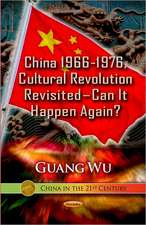Focus on Zimbabwe
Editat de Alfred J. Cartageen Limba Engleză Paperback – 18 ian 2010
Preț: 301.82 lei
Preț vechi: 407.15 lei
-26% Nou
Puncte Express: 453
Preț estimativ în valută:
57.76€ • 59.67$ • 48.07£
57.76€ • 59.67$ • 48.07£
Carte disponibilă
Livrare economică 04-18 martie
Preluare comenzi: 021 569.72.76
Specificații
ISBN-13: 9781606921869
ISBN-10: 160692186X
Pagini: 126
Dimensiuni: 152 x 226 x 9 mm
Greutate: 0.21 kg
Ediția:New.
Editura: Nova Science Publishers Inc
ISBN-10: 160692186X
Pagini: 126
Dimensiuni: 152 x 226 x 9 mm
Greutate: 0.21 kg
Ediția:New.
Editura: Nova Science Publishers Inc
Cuprins
Preface; Zimbabwe; Zimbabwe: 2008 Elections and Implications for U.S. Policy; Background Note: Zimbabwe; Index.










